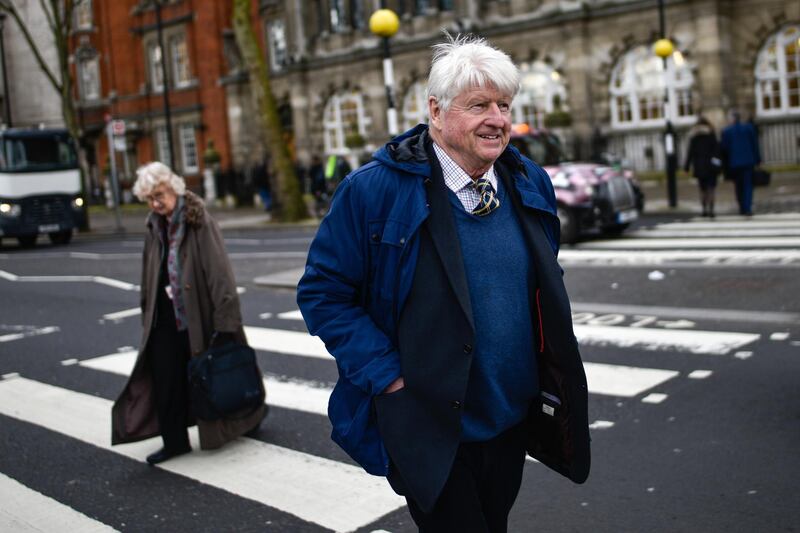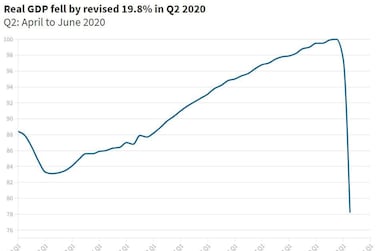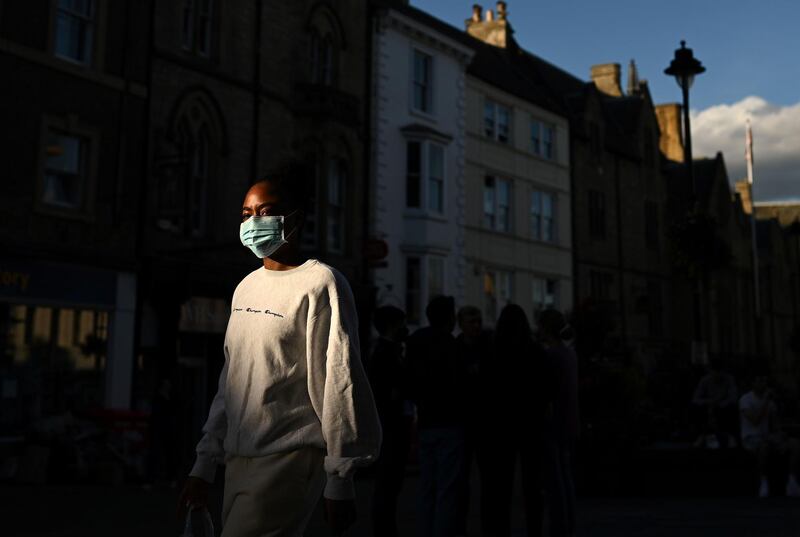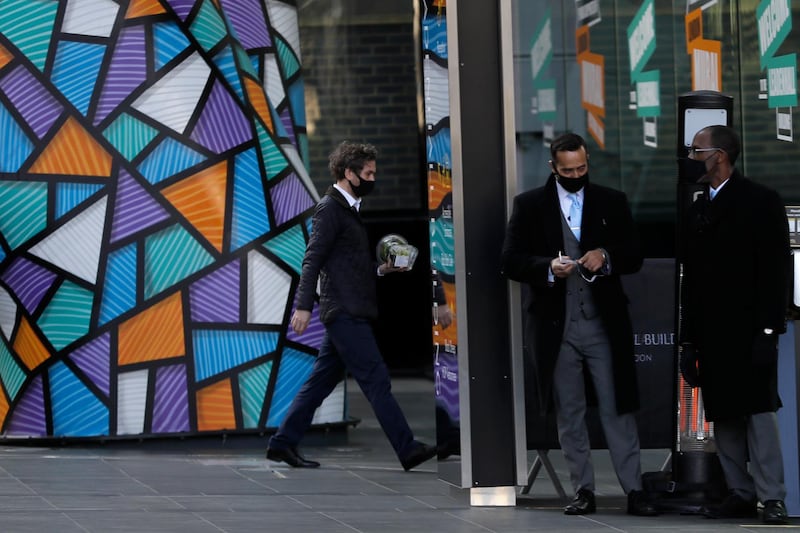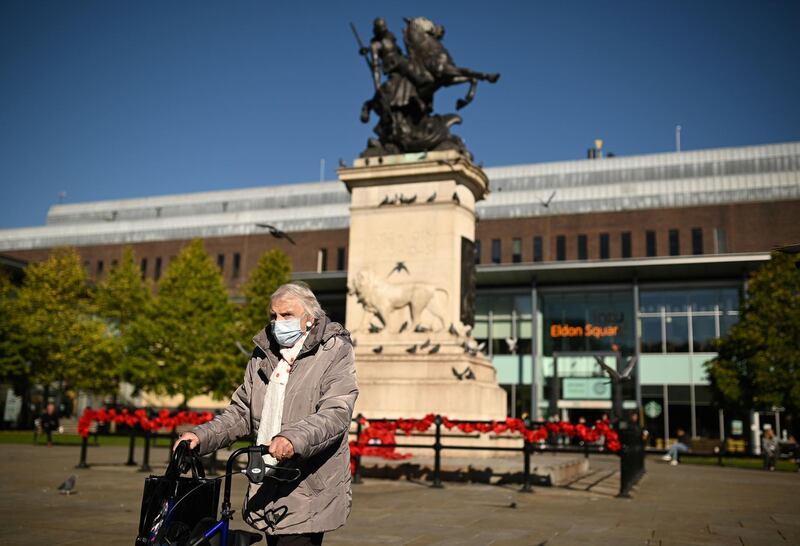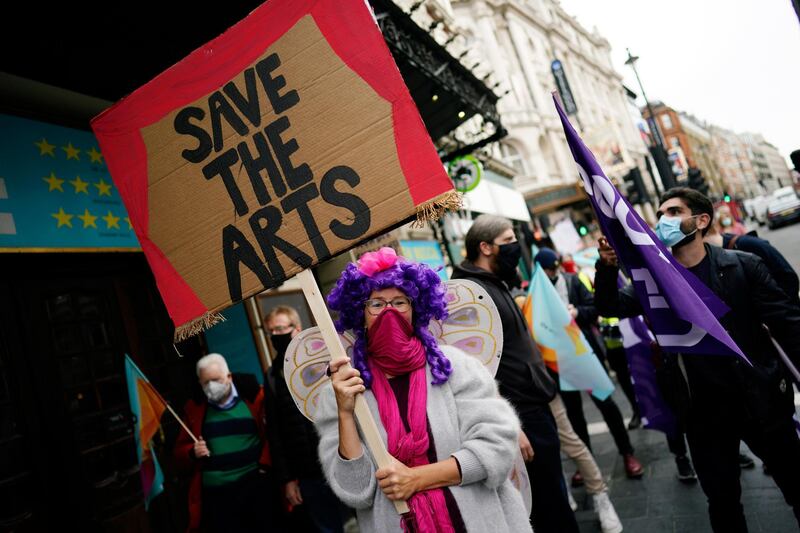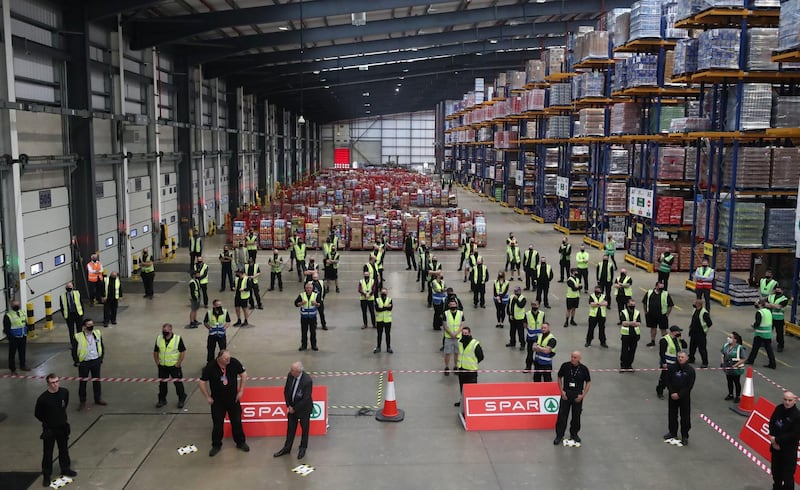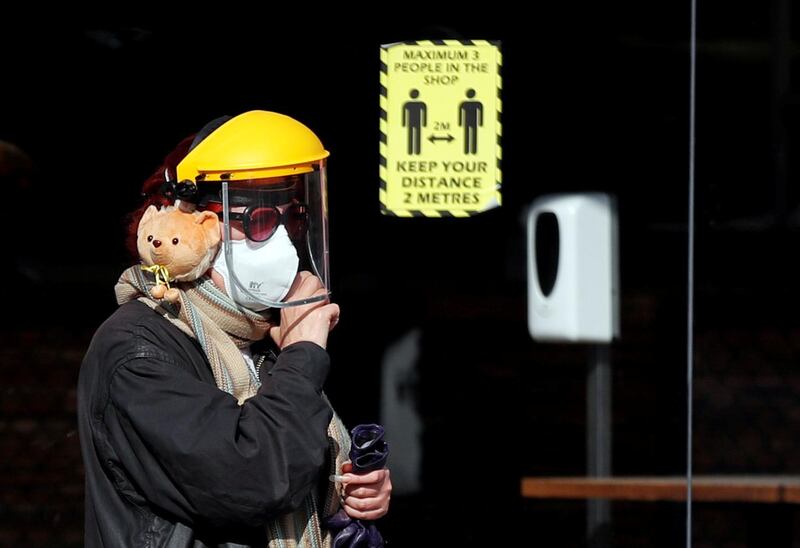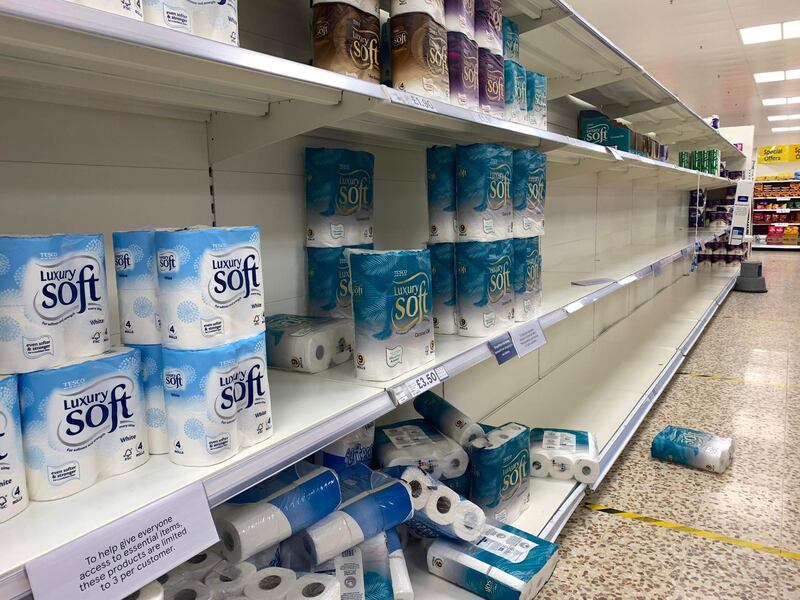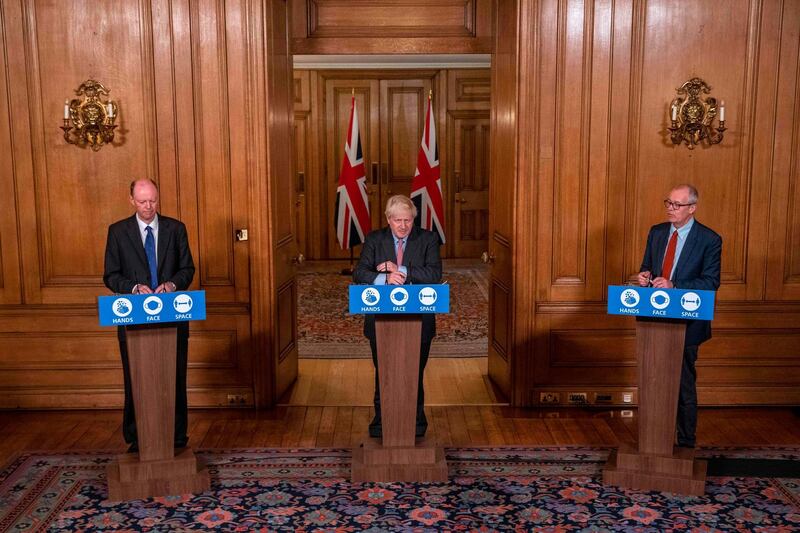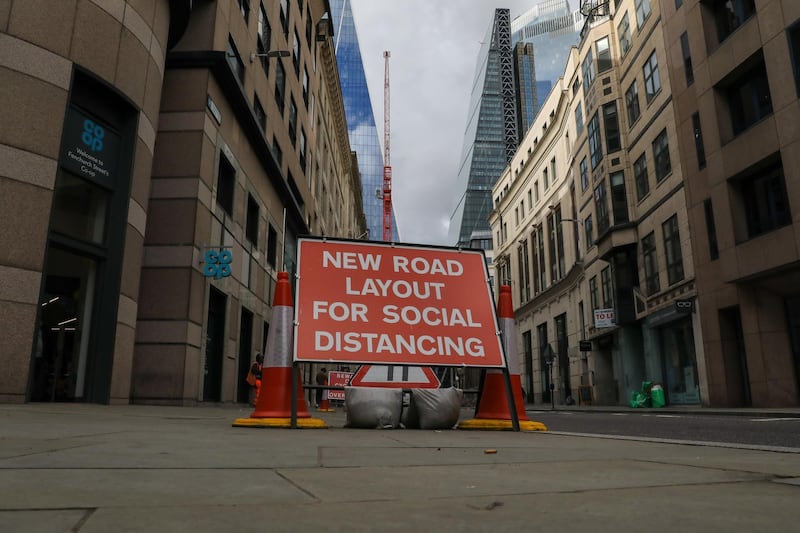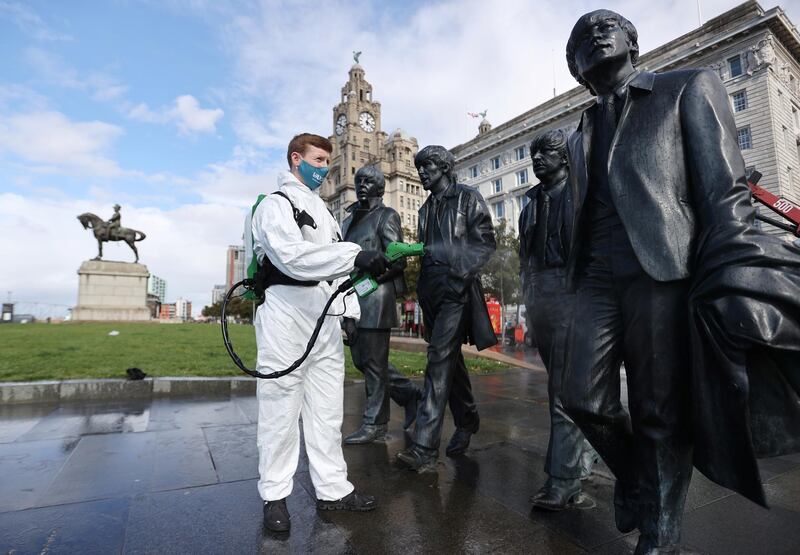Boris Johnson today urged his own father to follow the UK’s coronavirus rules after he was pictured in a shop not wearing a face mask.
Stanley Johnson, 79, said he was “extremely sorry” and admitted he may not be “100 per cent up to speed” on the rules after a photographer snapped him not covering his face and nose in a London newsagent.
The PM’s spokesman said Stanley Johnson “recognises his error and fully understands” why people should wear a mask indoors.
The spokesman added: “The PM is certainly clear that the rules apply to everyone and everyone should follow them.”
Former Labour leader Jeremy Corbyn also came under fire for breaking the rule of six by attending a dinner party with his wife and seven others.
He apologised but still faced calls from shadow health minister Dr Rosena Allin-Khan to pay the £200 fine for breaking coronavirus restrictions.
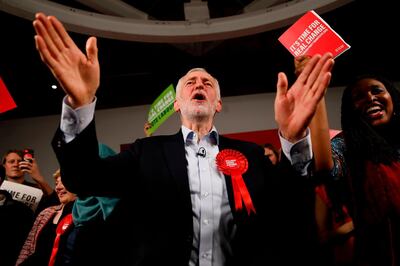
The row came on the day Britain’s postcode lockdown was extended and amid mounting fears the second wave would put up to four million people out of a job by next year.
The country also recorded 6,914 new coronavirus cases with 59 additional deaths in the previous 24 hours.
Health secretary Matt Hancock said local lockdown would be extended to include further areas in the north of England including Liverpool, Warrington, Hartlepool and Middlesbrough.
Residents in those areas will be banned from meeting other households in venues such as pubs and restaurants.
Mr Hancock advised against “all social mixing between households”, adding that people should not attend sporting events and to only visit care homes in “exceptional circumstances”.
In Liverpool, the UK’s fifth-largest city, the infection rate is 258 people per 100,000.
Mr Hancock said: “Together we need to act.”
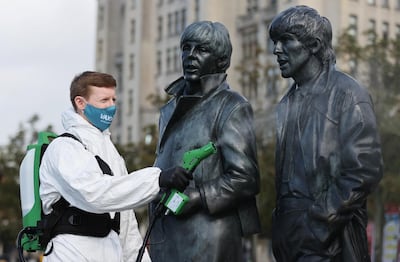
Up to 4 million could be out of a job
The tightened measures threaten to put more pressure on an already sagging economy.
The Office for Budget Responsibility, which provides analysis of the economy independent of government, is forecasting unemployment to rise to 13.2 per cent - equivalent to four million people - by next year.
The UK’s benefits system is planning around that scenario and will have boosted staff by up to 25,000 by next year as it deals with a surge in people applying for the dole.
Speaking on Sky News, environment secretary George Eustice said another national lockdown would be devastating and must be avoided at all costs to protect the economy.
He said: “It’s for precisely that reason we are trying to avoid a full lockdown, trying to enable restaurants and pubs to continue to trade, albeit on a restricted basis.
“This is a very, very difficult balance we’re trying to strike.”
London may be next in line for tougher measures after a key public health official warned the British capital was at a “tipping point”.
“Londoners still hold the key to reducing infection rates and lessening the impact of any second wave by making a continued conscious effort to consider our movements and behaviour,” Public Health England regional director Kevin Fenton said.
Mr Johnson said yesterday the UK was at a "critical moment" and he would "not hesitate" to impose further restrictions if needed.
On the continent, Madrid will go into lockdown in coming days with non-essential travel to the Spanish capital banned.
Madrid has 735 cases per 100,000 people, one of the highest of any region in Europe and double the national rate in the country, which has recorded 769,188 cases and 31,791 deaths.
The city and surrounding municipalities will see borders closed to outsiders for non-essential visits, with only travel for work, school, doctors' visits or shopping allowed.
Bars and restaurants will shut at 11pm each night.
In France, daily coronavirus cases increased by more than 10,000 yesterday while the number of people hospitalised with the disease rose to a 10-week high of 6,590.
The total number of confirmed cases stands at 563,535 while deaths were up by 63 at 31,956.
In a rare piece of good news, researchers involved in a mass testing programme at Imperial College London said they had seen signs that the growth of infection was slowing.
The survey, which involved 80,000 volunteers tested in England between September 18 and 26, found around 1 in 200 people were infected.
Professor Paul Elliott, director of the programme, said: "The growth of new cases may have slowed, suggesting efforts to control the infection are working.
"The prevalence of infection is the highest that we have recorded to date. This reinforces the need for protective measures to limit the spread of the disease."
Bank of England economist Andy Haldane was one public figure who urged people to look on the brighter side, despite GDP plunging in the second quarter of the year.
He said pessimistic “Chicken Licken” views were holding the UK’s economic recovery back, comparing negative forecasters to the children's storybook character who feared the sky would fall.
"Now is not the time for the economics of Chicken Licken," he said.
"My concern at present is that good news on the economy is being crowded out by fears about the future.
"Collective anxiety is as contagious, and could be as damaging to our well-being, as this terrible disease."
